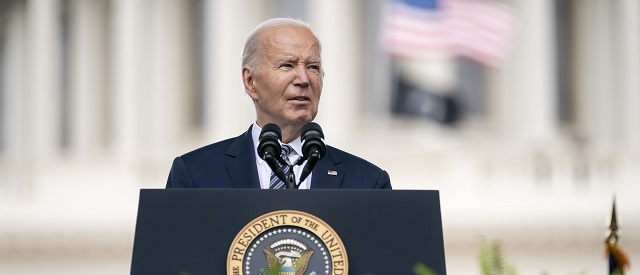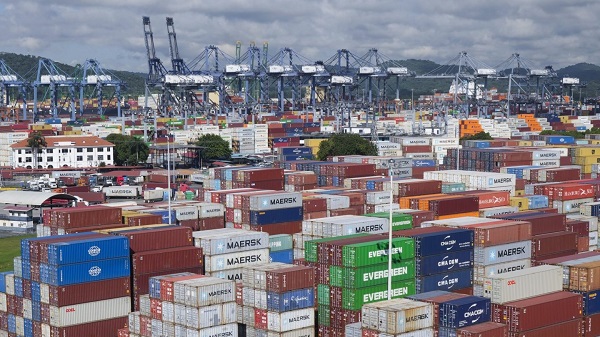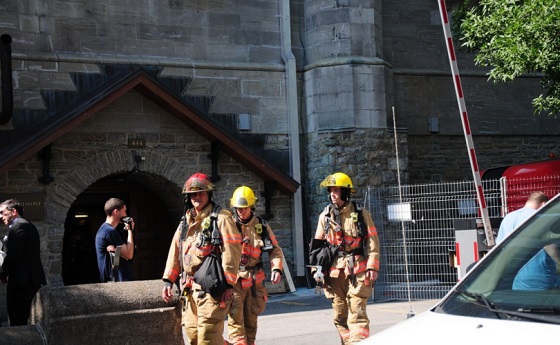Energy
Energy policies proposed at Republican and Democrat conventions are worlds apart

 From the Daily Caller News Foundation
From the Daily Caller News Foundation
Democrats Are On A Different Planet
As Republicans and Democrats meet at the conventions and propose policies for the next four years, the contrast between Republican and Democrat energy policies could not be greater.
Republicans would speed up oil and natural gas production; eliminate mandates to purchase electric vehicles; get rid of subsidies for renewables; and end dependence on China. Democrats propose to electrify the energy supply, ridding the economy of gasoline-powered vehicles and natural-gas appliances and substituting solar and wind for legacy fuels.
Through a series of executive orders and regulations, President Joe Biden has reduced federal oil and gas leases. America has 373.1 billion barrels of technically recoverable crude oil resources, and 2,973 trillion cubic feet of technically recoverable natural gas resources — an 85-year supply. Expect the next Republican administration to encourage production and use these resources to lower energy prices at home and around the world.
A Republican president would be able to reverse Biden’s executive orders and regulations. Increasing energy production is fourth out of 20 promises in the 2024 Republican Platform, “We will DRILL, BABY, DRILL and we will become Energy Independent, and even Dominant again. The United States has more liquid gold under our feet than any other Nation, and it’s not even close. The Republican Party will harness that potential to power our future.”
A Republican administration would allow a choice in cars. The Republican Party Platform calls for cancelling the mandate for EVs.
The Biden administration is subsidizing electric vehicles through the Inflation Reduction Act. Companies are paid to manufacture these EVs and consumers get tax credits to buy them. The Environmental Protection Agency’s final tailpipe rule would require 70% of new cars sold and 25% or new trucks sold to be battery powered electric or plug-in hybrid by 2032.
The Biden administration has focused on providing wind and solar power through billions in tax credits in the Infrastructure and Jobs Act and the Inflation Reduction Act. Either directly or through access to banks and Wall Street investors, it is deciding who is suitable to receive funding for energy projects.
But government control of energy is control of people and the economy. This is one reason why the trend toward nationalization of our energy industry through government mandates, bans on the production and use of oil and natural gas and reorganization of the electric grid is so dangerous.
Under a new Republican administration, rather than slowing down pipeline approval, the Federal Energy Regulatory Commission would focus on speeding it up. The Bureau of Land Management would prioritize approving both onshore and offshore drilling permits. The Security and Exchange Commission would no longer look at climate effects of companies’ investments, and the Office of the Comptroller of the Currency would not look at the climate effects of bank loans.
Democrat energy policies increase dependence on China because China makes nearly 80% of the world’s batteries and is home to 7 out of 10 of the world’s largest solar panel manufacturers, and 7 out of 10 of the world’s largest wind turbine manufacturers. China dominates the critical minerals such as lithium and cobalt required for EVs through its own mines and by purchasing mines in Africa and Latin America.
Trade with China is not free or fair. China can produce lower-cost goods because it subsidizes labor, capital and energy. It uses forced labor from Xinjiang; gives low-interest rate loans to favored companies; and is not bound by the clean energy regulations of the West.
The next administration should use America’s domestic resources and provide tools to assist our allies and deter our adversaries.
Diana Furchtgott-Roth, former deputy assistant secretary for research and technology at the U.S. Department of Transportation, is the director of The Heritage Foundation’s Center for Energy, Climate and Environment.
Energy
Canada’s oilpatch shows strength amid global oil shakeup

This article supplied by Troy Media.
Global oil markets are stumbling under too much supply and too little demand but Canada’s energy sector is managing to hold its own
Oil prices are sliding under the weight of global oversupply and weakening demand, but Canada’s oilpatch is holding steady—perhaps even thriving—as others flounder.
Crude is piling up in tankers, major producers are flooding the system, and demand is fading fast. According to a Windward report cited by Oilprice.com, the amount of oil held in floating storage—tankers sitting offshore waiting for buyers —has hit record highs. Sanctions on Russian and Iranian crude have sidelined entire fleets. Meanwhile, Middle East cargoes continue to pour in, keeping global supply bloated.
Gunvor CEO Torbjorn Tornqvist called the scale “unprecedented,” warning the market would be flooded overnight if sanctions against Russian and Iran were lifted.
And there’s more coming. U.S. crude production has hit a new record of 13.8 million barrels per day in August. And China’s Changqing oilfield just surpassed 20 million tonnes in cumulative output, and national totals have topped 400 million tonnes of oil equivalent this year. More barrels. More pressure. Less price support.
At the same time, demand is slipping. U.S. gasoline use is down. Global shipping activity has slowed. JPMorgan just trimmed its 2025 oil demand forecast by 300,000 barrels per day. China’s manufacturing sector shrank for the seventh month in a row.
Japan’s purchasing index dropped to an 18-month low. And recession fears are back in the headlines.
OPEC+ tried to calm the chaos by announcing a modest increase in output this December, with a pause on future hikes. But the move didn’t move markets. Then Saudi Arabia cut its selling prices to Asia, a clear signal that the kingdom sees weak demand ahead.
In short, it’s messy out there. But not everywhere.
Amid this global downturn, Canada’s energy sector stands out for one rare quality: resilience. While other producers are scaling back or scrambling to adapt, Canada’s oilpatch is quietly outperforming.
A recent CBC News report highlighted the sector’s staying power and why it’s better positioned than its U.S. counterparts. “The companies that have survived here are the companies that have been able to adapt,” said Patrick O’Rourke, managing director at ATB Capital Markets. “It’s effectively Darwinism.”
It’s also smart design. Canada’s oilsands—primarily in Alberta—are expensive to build but cheap to run. Once the upfront costs are covered, producers can keep pumping for decades with relatively low reinvestment. That means even in a
downturn, output stays strong.
Dane Gregoris of Enverus says Canada’s conventional sector is holding up better than the U.S. shale patch. Why? Canadian oil producers operate more efficiently, with fewer legal and logistical barriers tied to land access and ownership than their U.S. shale counterparts. They also benefit from lower operating costs and are less dependent on relentless drilling just to maintain output.
And now, they finally have a way to get more oil out.
The long-delayed Trans Mountain pipeline expansion is finally complete. It delivers Alberta crude to B.C.’s tidewater and, from there, to Asian markets. That access, once a significant limitation for Canadian producers, is now a strategic advantage. It’s already helping offset lower global prices.
Canada’s energy sector also benefits from long-life assets, slow decline rates and political stability. We have a reputation for responsible regulation, but that same system can slow development and limit how quickly we respond to shifting global demand. We can offer a stable, secure supply but only if infrastructure and regulatory hurdles don’t block access to it.
And for Canadians, that matters. Oil prices don’t just fuel industry headlines; they shape provincial and national budgets, drive investment and underpin jobs across the country. Most producers around the world are bracing for pain but Canada may be bracing for opportunity to expand its presence in Asian markets, secure long-term export contracts and position itself as a reliable supplier in a turbulent global landscape.
None of this means Canada is immune. If demand collapses or sanctions lift, prices could sink further. But in a volatile global landscape, Canada isn’t scrambling—it’s competing.
While others slash forecasts, shut wells or hope for an OPEC rescue, Canada’s energy producers are doing something rare in today’s oil market: holding the line.
Toronto-based Rashid Husain Syed is a highly regarded analyst specializing in energy and politics, particularly in the Middle East. In addition to his contributions to local and international newspapers, Rashid frequently lends his expertise as a speaker at global conferences. Organizations such as the Department of Energy in Washington and the International Energy Agency in Paris have sought his insights on global energy matters.
Troy Media empowers Canadian community news outlets by providing independent, insightful analysis and commentary. Our mission is to support local media in helping Canadians stay informed and engaged by delivering reliable content that strengthens community connections and deepens understanding across the country
Alberta
How economic corridors could shape a stronger Canadian future

Ship containers are stacked at the Panama Canal Balboa port in Panama City, Saturday, Sept. 20, 2025. The Panama Canals is one of the most significant trade infrastructure projects ever built. CP Images photo
From the Canadian Energy Centre
Q&A with Gary Mar, CEO of the Canada West Foundation
Building a stronger Canadian economy depends as much on how we move goods as on what we produce.
Gary Mar, CEO of the Canada West Foundation, says economic corridors — the networks that connect producers, ports and markets — are central to the nation-building projects Canada hopes to realize.
He spoke with CEC about how these corridors work and what needs to change to make more of them a reality.
CEC: What is an economic corridor, and how does it function?
Gary Mar: An economic corridor is a major artery connecting economic actors within a larger system.
Consider the road, rail and pipeline infrastructure connecting B.C. to the rest of Western Canada. This infrastructure is an important economic corridor facilitating the movement of goods, services and people within the country, but it’s also part of the economic corridor connecting western producers and Asian markets.
Economic corridors primarily consist of physical infrastructure and often combine different modes of transportation and facilities to assist the movement of many kinds of goods.
They also include social infrastructure such as policies that facilitate the easy movement of goods like trade agreements and standardized truck weights.
The fundamental purpose of an economic corridor is to make it easier to transport goods. Ultimately, if you can’t move it, you can’t sell it. And if you can’t sell it, you can’t grow your economy.
CEC: Which resources make the strongest case for transport through economic corridors, and why?
Gary Mar: Economic corridors usually move many different types of goods.
Bulk commodities are particularly dependent on economic corridors because of the large volumes that need to be transported.
Some of Canada’s most valuable commodities include oil and gas, agricultural commodities such as wheat and canola, and minerals such as potash.
CEC: How are the benefits of an economic corridor measured?
Gary Mar: The benefits of economic corridors are often measured via trade flows.
For example, the upcoming Roberts Bank Terminal 2 in the Port of Vancouver will increase container trade capacity on Canada’s west coast by more than 30 per cent, enabling the trade of $100 billion in goods annually, primarily to Asian markets.
Corridors can also help make Canadian goods more competitive, increasing profits and market share across numerous industries. Corridors can also decrease the costs of imported goods for Canadian consumers.
For example, after the completion of the Trans Mountain Expansion in May 2024 the price differential between Western Canada Select and West Texas Intermediate narrowed by about US$8 per barrel in part due to increased competition for Canadian oil.
This boosted total industry profits by about 10 per cent, and increased corporate tax revenues to provincial and federal governments by about $3 billion in the pipeline’s first year of operation.
CEC: Where are the most successful examples of these around the world?
Gary Mar: That depends how you define success. The economic corridors transporting the highest value of goods are those used by global superpowers, such as the NAFTA highway that facilitates trade across Canada, the United States and Mexico.
The Suez and Panama canals are two of the most significant trade infrastructure projects ever built, facilitating 12 per cent and five per cent of global trade, respectively. Their success is based on their unique geography.
Canada’s Asia-Pacific Gateway, a coordinated system of ports, rail lines, roads, and border crossings, primarily in B.C., was a highly successful initiative that contributed to a 48 per cent increase in merchandise trade with Asia from $44 million in 2006 to $65 million in 2015.
China’s Belt and Road initiative to develop trade infrastructure in other countries is already transforming global trade. But the project is as much about extending Chinese influence as it is about delivering economic returns.

Piles of coal awaiting export and gantry cranes used to load and unload containers onto and from cargo ships are seen at Deltaport, in Tsawwassen, B.C., on Monday, September 9, 2024. CP Images photo
CEC: What would need to change in Canada in terms of legislation or regulation to make more economic corridors a reality?
Gary Mar: A major regulatory component of economic corridors is eliminating trade barriers.
The federal Free Trade and Labour Mobility in Canada Act is a good start, but more needs to be done at the provincial level to facilitate more internal trade.
Other barriers require coordinated regulatory action, such as harmonizing weight restrictions and road bans to streamline trucking.
By taking a systems-level perspective – convening a national forum where Canadian governments consistently engage on supply chains and trade corridors – we can identify bottlenecks and friction points in our existing transportation networks, and which investments would deliver the greatest return on investment.
-

 Business2 days ago
Business2 days agoCarney shrugs off debt problem with more borrowing
-

 Alberta2 days ago
Alberta2 days agoWhen Teachers Say Your Child Has Nowhere Else to Go
-

 Automotive2 days ago
Automotive2 days agoThe high price of green virtue
-

 Addictions2 days ago
Addictions2 days agoCanada is divided on the drug crisis—so are its doctors
-

 Bruce Dowbiggin2 days ago
Bruce Dowbiggin2 days agoMaintenance Mania: Since When Did Pro Athletes Get So Fragile?
-

 Daily Caller2 days ago
Daily Caller2 days agoProtesters Storm Elite Climate Summit In Chaotic Scene
-

 MAiD2 days ago
MAiD2 days agoQuebec has the highest euthanasia rate in the world at 7.4% of total deaths
-

 National1 day ago
National1 day agoConservative bill would increase penalties for attacks on places of worship in Canada









